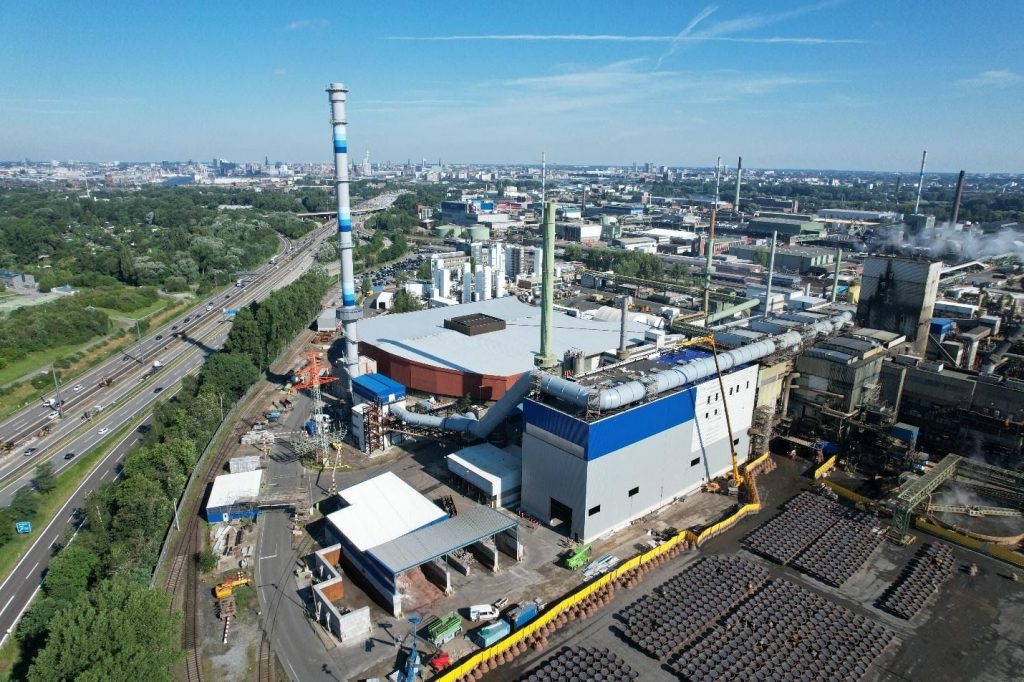Nearly 80% of the production processes of the German concern Aurubis are already electrified, and the company continues to make efforts to reduce its carbon footprint. The future of plants is closely related to green energy and hydrogen. This was explained by Hans-Christian Henne, Senior Manager “Energy and Climate” of the “Aurubis” group, who participated in the international forum “The Green Transition – Solutions and Challenges for Bulgaria”, organized by Dir.bg and 3eNews.
Copper production is a highly energy-intensive sector. However, Aurubis is among the leaders in energy efficiency in heavy industry. On average for Europe, the carbon footprint of the industry is over 4027 kg per ton of CO2 according to data from the International Copper Association. Aurubis footprint is 1/3 less than the standard or 1690 kg per ton CO2
In Bulgaria, the company operates the copper extraction plant near Pirdop and Zlatitsa and is the largest German investor in our country.
Since 2013, all Aurubis factories have achieved a reduction in CO2 emissions by about 89,000 tons. In Hamburg, where the headquarters of the concern is located, installations are operating for the use of industrial steam both for own needs and for heating one of the new districts of the city – Hafencity.

We have already reached a high level of electrification – more than 80% of the production processes in the “Aurubis” group are electrified, Henne also announced. Among the company’s green policies is the project of “Aurubis Bulgaria” to build a photovoltaic park for its own needs with an installed capacity of 10 megawatts. The solar power plant is expected to optimize electricity consumption by 11,700 MWh per year, and for the period of 15 years, the total production of renewable energy will reach nearly 170,000 MWh. The project will save 4,000 tons of carbon emissions per year, or over 60,000 tons for the planned period of operation. The plant will cover 2.5% of the average annual electricity consumption of the oil extraction plant near Pirdop and Zlatitsa.
The solar power plant is expected to optimize electricity consumption by 11,700 MWh per year, and for the period of 15 years, the total production of renewable energy will reach nearly 170,000 MWh. The project will save 4,000 tons of carbon emissions per year, or over 60,000 tons for the planned period of operation. The plant will cover 2.5% of the average annual electricity consumption of the oil extraction plant near Pirdop and Zlatitsa.
“Aurubis” is already testing in Germany various options for replacing natural gas with hydrogen. Tests are conducted at the Hamburg plant. By replacing the blue fuel with hydrogen, it is expected to save about 6,200 tons of carbon dioxide per year. If the entire production of anode copper in the “Aurubis” group switches to hydrogen fuel, the savings will be on the order of 40 to 50 thousand tons of CO2 per year, according to calculations.
Hans-Christian Henne drew a parallel with the “Aurubis Bulgaria” plant, which is expected to be connected to the gas transmission network. We remind you that the state-owned “Bulgartransgaz” is currently building a transmission gas pipeline to Panagyurishte and the region of Srednohorieto.
In the Green Transition of the EU, the use of metals plays an essential role, Henne also shared. With the introduced technologies, “Aurubis” managed to save 1.9 million tons of CO2 equivalent. The company achieves a negative carbon balance: saved emissions exceed permitted carbon dioxide quotas. This means that the company has the right to sell additional allowances under the European trading scheme.
The problems
“It is very important to reduce our energy costs,” Henne said. The main risk for the “Aurubis” group remains the high electricity prices. In July-August of this year, prices began to rise and measures must be taken in Bulgaria so that production can remain competitive on foreign markets in the future. This is a necessary condition for both electricity and carbon trading. These two processes are also key in making investment decisions at the moment. “That’s why I emphasize that mechanisms are needed to ensure electricity at prices that keep us competitive,” the specialist added.
He gave an example from Germany, where “Aurubis” achieved discounts on the supplied green energy, thanks to which this electricity is at a very reasonable price. It is necessary to provide the same opportunities in Bulgaria. This can be achieved by long-term energy supply contracts and by introducing a compensation scheme for the indirect CO2 costs of emissions in the price of electricity.
“Aurubis” is a leading international group for the production of metals and the largest processor of copper in the world. The company has more than 7,400 employees at its production bases in Europe and the United States. “Aurubis Bulgaria” is among the largest companies in South-Eastern Europe and plays a structural role in the economy of our country.
